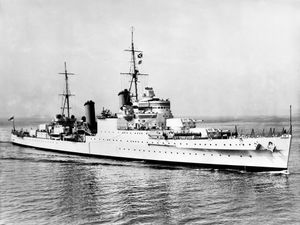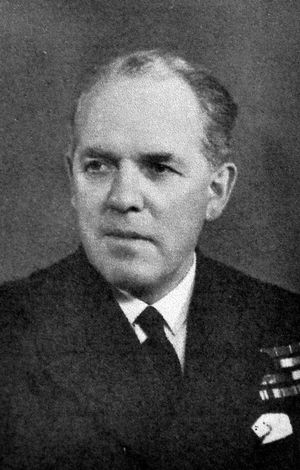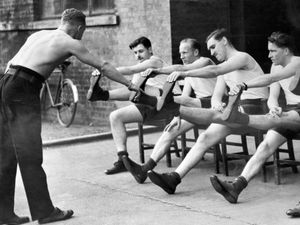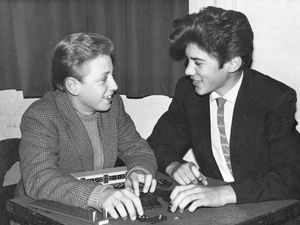How a revered Second World War captain who saved his crew ended up facing court martial
The ship was lost, but the crew was spared, and before she went down they gave three cheers for their revered Shropshire captain.

It was not a sentiment shared by the Admiralty. After the loss of the mighty warship HMS Manchester, Captain Harold Peter Drew was court martialled and condemned, and would never again be allowed command of a Royal Navy ship.
The decisions Captain Drew made on that fateful night in August 1942 possibly – perhaps probably – saved hundreds of lives.

As the cruiser lay listing and dead in the water, stricken by a torpedo and a sitting duck to enemy forces when dawn broke, he gave the order to abandon ship and scuttle her – that is, deliberately sink her.
His dilemma was neatly summed up in his words to his engineering commander as he mulled over his ship’s dire predicament: “I have to make a decision whether to try and save this valuable ship, against the risk of further heavy loss of valuable lives.”
But what he did was not in accord with the Royal Navy’s Nelsonian traditions.
“As long as a ship remains afloat and has even one gun in action she may cause damage to the enemy,” was the view of the First Sea Lord, Sir Dudley Pound.

The court martial of Drew is reputed to have been the longest in naval history. And its verdict was damning.
Rather than prematurely scuttle his own ship, it was his duty to do his utmost to get her to harbour, it ruled. Captain Drew, who came from Oswestry, was severely reprimanded, and his card was marked to ensure he never had a sea command again.
Some key factors had counted against him. HMS Manchester was not sinking. Sterling work by his crew had seen the list largely righted and, although seriously damaged, given time HMS Manchester would have been capable of steaming, albeit at greatly reduced speed, being transformed from a sitting duck to an extremely vulnerable limping duck which could have taken its chances in attempting to reach a port.
A little over a year earlier the ship had suffered an almost identical torpedo hit but, with Captain Drew in command, was able to reach Gibraltar.
The tactical circumstances of that incident were far more favourable, with the ship on the open sea, in contrast to 1942 when HMS Manchester was only two miles off a hostile coast in seas and skies infested with enemy U-boats, torpedo boats, and aircraft, and with prospects of success in hobbling to a distant port looking slim.
No wonder then that many of the crew – the ship had a complement of over 800 men – felt they owed their lives to Captain Drew and that he had been treated abominably.
The controversy was reignited when the wreck was discovered off the Tunisian coast in 2002. Divers found the ship was severely damaged and the expedition leader asserted that Manchester could never have reached port.





